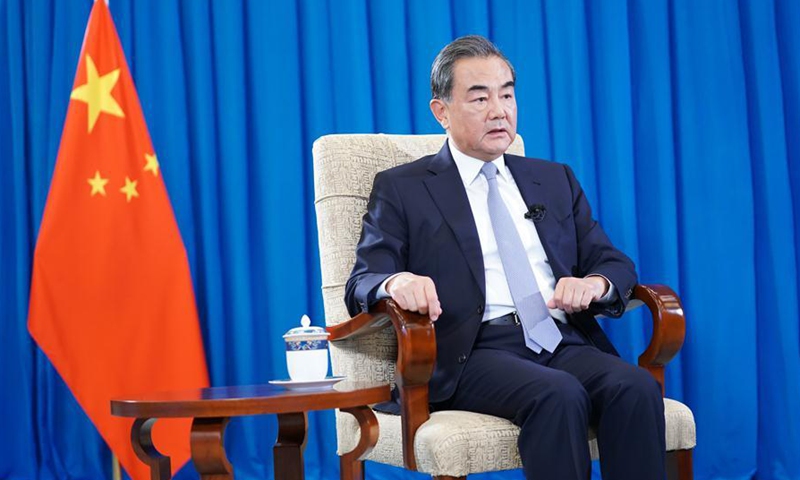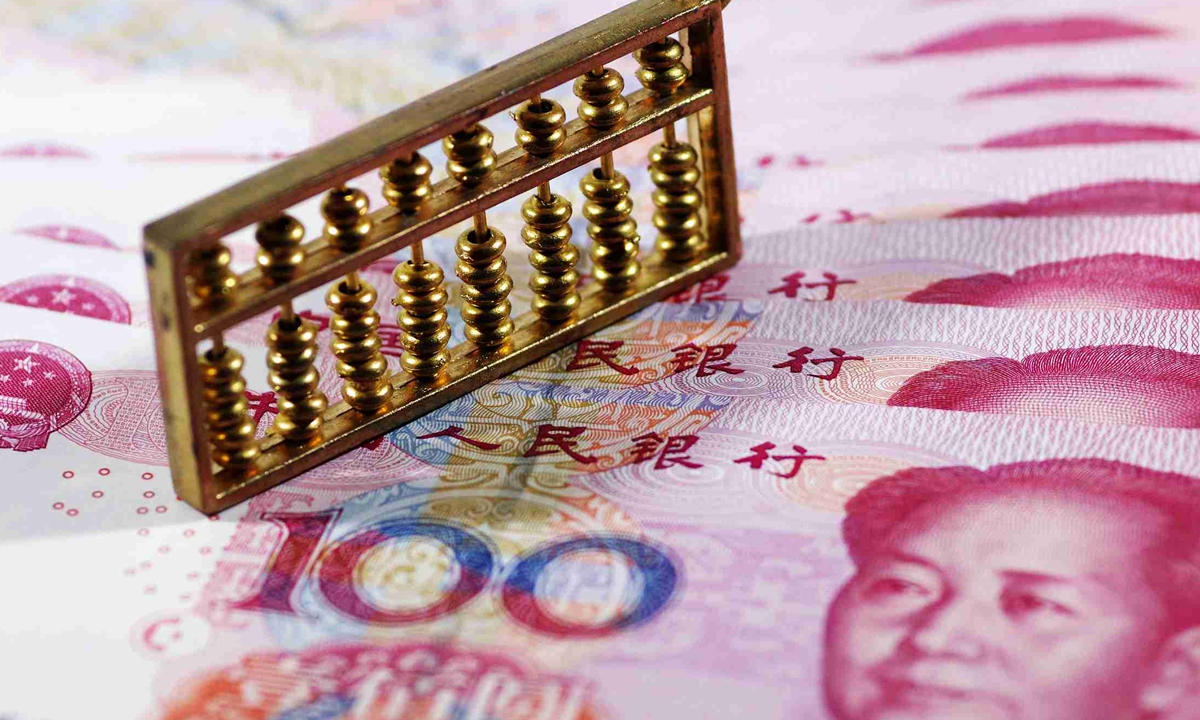
Chinese State Councilor and Foreign Minister Wang Yi gives an exclusive interview to Xinhua on China-U.S. ties in Beijing, capital of China, Aug. 5, 2020. (Xinhua/Zhai Jianlan)
The US is urged to comply with multilateralism, and to proceed with China-US relations in the right way; any unilateral move to crack down on other countries in order to defend its monopoly position is doomed to fail in a world where every member is closely connected, Chinese State Councilor and Foreign Minister Wang Yi said while holding a video meeting with ASEAN foreign ministers, emphasizing regional cooperation.
The video conference, held with Wang and foreign ministers from the 10 ASEAN states took place on Wednesday. Wang mentioned that the US' overall denial of its decades-long policy toward China, its extreme attempts to smear China, and its constant crackdowns have all caused bilateral ties to nosedive.
Wang said that the dispute between Washington and Beijing is not a struggle for power, nor a battle of different systems, but whether to move forward with multilateralism or unilateralism, whether to promote win-win cooperation or a zero-sum competition.
Observers said such a torrent of criticism toward the US during meetings with ASEAN countries is a direct response to Washington's frequent provocations in the South China Sea recently.
Observers noted that cooperation between China and ASEAN countries sets a model example for regional cooperation when the world is being challenged by rising unilateralist sentiment.
The recent frequent and high-level official exchanges between China and the ASEAN member countries have signaled that China is attaching increasing importance to improving ties with the bloc, said Gu Xiaosong, an expert on Southeast Asian studies at the Guangxi Academy of Social Sciences.
China and ASEAN have been successfully managing differences and gaining outstanding momentum in preventing and controlling the pandemic as well as boosting economic recovery. And such achievements would make the countries even more immune to noise from the outside, observers noted in a shared confident vision.
Last week, Harry Roque, Philippine President Rodrigo Duterte's spokesperson, said the Philippines will not follow the US directive on sanctioning Chinese individuals and companies that are involved in the South China Sea.
Observers say the US keeps portraying China as a "hegemonic state" with China's construction on the islands and reefs in the South China Sea.
US meddling in the South China Sea will eventually just be a "monodrama," and few countries will follow Washington to stand against China, as choosing sides between Beijing and Washington won't bring any benefit to ASEAN countries, Chen Xiangmiao, an assistant research fellow at the National Institute for South China Sea Studies, told the Global Times.
Wang also said at the conference that China has no intention to seek hegemony, nor does it desire to take over the US. We will defend our sovereignty, safety and right to development, and at the same time, seek to communicate with the US, push it to adopt multilateralism and treat China-US relations with a rational attitude, said Wang.
Wang said China and ASEAN countries are devoted to implementing the Code of Conduct on the South China Sea (COC), explore in flexible ways regarding the code and effectively maintain stability in the South China Sea region.
Gu said the COC will be an institutional guarantee of regional stability and peaceful development, especially amid military provocations and political meddling from the US.
Despite global downward pressure, China-ASEAN trade and investment has witnessed remarkable growth. Chinese Ambassador to ASEAN Deng Xijun said that in the first half of this year, the trade in goods between China and ASEAN reached 2.09 trillion yuan ($298 billion), representing a 5.6 percent year-on-year increase.
ASEAN has overtaken the European Union to become China's largest trading partner for the first time, showing strong resilience of China-ASEAN economic and trade relations and contributing to the recovery of the regional and global economy, Xinhua News Agency reported.
During the conference, Wang also stressed cooperation in the post-pandemic era. He said that once put into use, China would prioritize ASEAN countries' need for a COVID-19 vaccine, and enhance sharing of information and R&D of the vaccines with those states.
Gu also made suggestions that China could strengthen pandemic support with ASEAN countries especially in the development and supply of a vaccine once it is put into practice, and implement Belt and Road initiative projects in ASEAN countries to render the effective investment in the region more effective and beneficial for the local economy.



